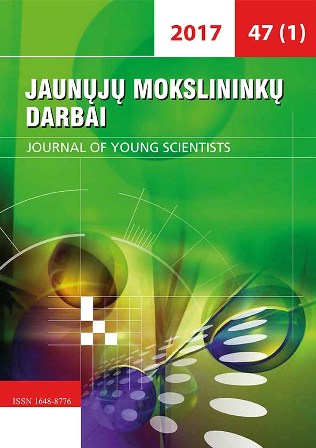NETRADICINIŲ STUDENTŲ PATIRTINIO MOKYMOSI TEORINĖS ĮŽVALGOS
THEORETICAL INSIGHTS INTO ENGAGING NON-TRADITIONAL STUDENTS IN EXPERIENTIAL LEARNING
Author(s): Daiva TreinienėSubject(s): Adult Education, Higher Education , Sociology of Education
Published by: Vilniaus Universiteto Leidykla
Keywords: non-traditional students; experiential learning; concept;
Summary/Abstract: Non-traditional students are those who pursue higher education in a non-traditional way, they are adults and have prior learning or experience. Several definitions of experiential learning, the main characteristics of experiential learning that reveal the essence of the concept are provided in the paper. The author analysed the role of prior learning or experience in the learning process, explained the essence of the concept of experiential learning, its stages, elements, cycles. Research question: What are theoretical insights into engaging non-traditional students in experiential learning? Research object: Experiential learning and non-traditional students. Research aim: to reveal theoretical insights into engaging non-traditional students in experiential learning. Research methods: literature review, analysis and clarification of the theoretical aspects of experiential learning, generalization of the theoretical insights into experiential learning. Conclusions. Experiential learning can be understood as a model, methodology or approach. It is learning through experience, through doing or through previous learning; students are provided with the opportunity to transfer knowledge and skills gained in one learning or real life situation to another and apply to job. Experience-based learning engages non-traditional students in active learning. Stages of experiential learning: experience, reflection, preparation for job.
Journal: Jaunųjų mokslininkų darbai
- Issue Year: 2017
- Issue No: 1 (47)
- Page Range: 46-52
- Page Count: 8
- Language: Lithuanian

